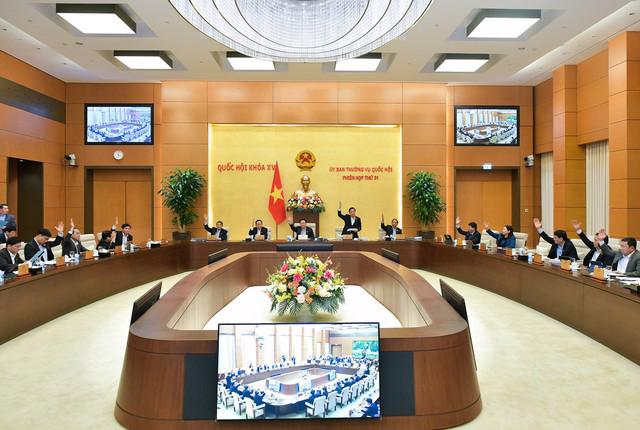The Standing Committee of Vietnam's National Assembly, during its 31st session on March 19th, approved the establishment of several new administrative units.
This includes An Dien and An Tay wards within Ben Cat town, paving the way for the establishment of Ben Cat City in the southern Binh Duong province. Additionally, the committee approved the reorganization of wards in Gò Công town to create Go Cong City in Tien Giang province, also in southern Vietnam.
Ben Cat City, now one of the most populous cities in Binh Duong province, covers 234.35 square kilometers and has nearly 364,600 residents. Boasting 8 industrial parks and a concentrated industrial production zone, it has attracted substantial foreign investment exceeding $1.5 billion.
Minister of Home Affairs, Pham Thi Thanh Tra, highlighted Ben Cat's strategic role as one of Binh Duong's key municipalities and a northern growth engine for the Ho Chi Minh City region. The area is envisioned as a hub for high-tech and clean industries, research and technology, scenic areas along the Saigon and Dong Nai Rivers, and peripheral agriculture.
By 2030, Ben Cat aims to become an industrial-service urban area. It has an even more ambitious goal for 2040: to evolve into an urban center with industrial, service, and transportation hub functions, supported by a robust road system seamlessly connecting key routes, industrial parks, and urban areas throughout the province's southern region.
While acknowledging the area's potential, Chairman of the Legal Committee, Hoang Thanh Tung, noted that Ben Cat City falls short of certain urban quality standards. These include the availability of land for public works, healthcare facilities per capita, household electricity access rates, and green space ratios.
Go Cong City, with an area of 101.69 square kilometers and a population of 152,000, is built upon the foundation of Go Cong town. Positioned along the southwest economic corridor, the new city is poised to become a cultural-historical tourism, trade, and services center linking Ho Chi Minh City with the Mekong Delta.
Development priorities include the coastal economy, industrial clusters, coastal ports, maritime transportation, fishing, aquaculture, commerce, and tourism. Go Cong town achieved impressive results in 2022 with a production value exceeding $282 million, an economic growth rate of 10.54%, and 81% of its economy driven by commercial-service and industrial-construction sectors.
Minister Tra affirmed that establishing Go Cong City is a necessary step that aligns with economic management and planning requirements, and fulfills the aspirations of the local population.









 Google translate
Google translate